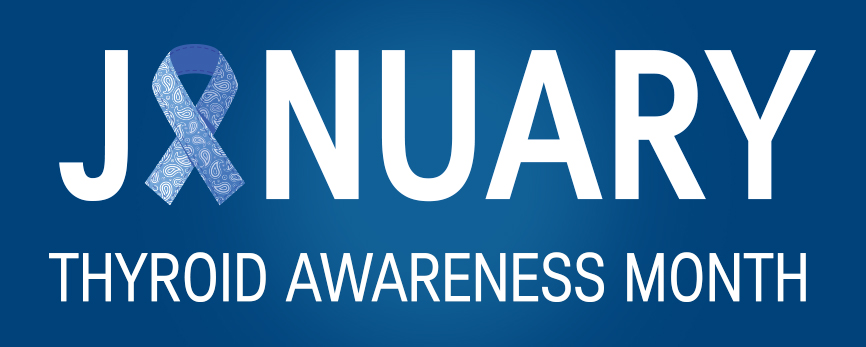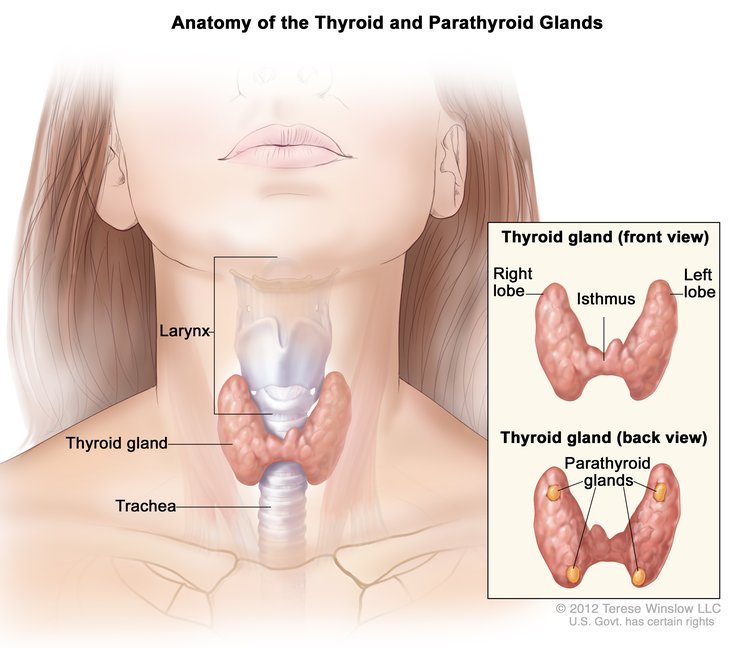Changes in Mood or Energy—Could It Be Your Thyroid?
Did you know that January is National Thyroid Awareness Month? Don’t feel bad if you didn’t! The truth is, most people know very little about the thyroid.
We all know how important the brain, heart, liver, kidneys, skin and bones are to life. But it isn’t common knowledge that the thyroid has a huge impact on the function and health of every single one of those body parts (and more).
The difficulty is that thyroid disease can be very easily hidden by or mistaken for other health issues. Everyday challenges like irritability, depression, trouble sleeping and fatigue can actually be indicators of a thyroid condition.
The Thyroid—a Little Gland with a Big Job
The thyroid is a small, butterfly shaped gland in the neck that sits just below the Adam’s apple. It releases thyroid hormones that control how our brains, hearts, livers, kidneys, skin, bones, metabolic systems and the cells throughout our entire bodies work.
Think of it like an air traffic controller telling all those organs and processes how fast or how slow to go so everything runs smoothly and nothing crashes. When the thyroid doesn’t do its job effectively, it can result in a chain reaction throughout the body.
Thyroid Disease Is Tricky to Spot
Unfortunately, thyroid disease doesn’t come with an obvious symptom like thyroid pain. Because the thyroid controls many different organs and processes in the body, the symptoms can be vague and attributed to everyday issues like diet and stress.
Thyroid disease can take two major forms, hypothyroidism and hyperthyroidism, and within each of those two forms, it can have many different variants. But in nearly all cases, the symptoms of thyroid disease can be easily mistaken for other health-related issues.
[image: womenshealth.gov]
Hypothyroidism
This means the thyroid gland isn’t producing enough thyroid hormone to direct the major organs and other bodily processes.
Symptoms Include
- Feeling Cold
- Being Tired
- Depression
- Weight Gain
Hyperthyroidism
This means the thyroid produces too much thyroid hormone, sending your body into overdrive.
Symptoms Include
- Quickened Pulse
- Feeling Hot
- Irritability
- Insomnia
Considering how many common health issues could cause the symptoms above—it’s easy to see how thyroid disease can be difficult to identify.
What Are the Consequences of Thyroid Disease?
Once thyroid disease is detected, it can often be treated with medication. Sometimes the need for medication is only temporary. If left untreated, thyroid disease can lead to:
- Heart Disease
- Increased Risk for Autoimmune Diseases
- Diabetes
- Arthritis
- Kidney Disease
- Liver Disease
- Osteoporosis
- Infertility
How Common Is Thyroid Disease?
Risk Factors for Thyroid Disease
The most common risk factors include: a family history of thyroid disease, taking lithium or amiodarone, and a history of radiation therapy.
Recent pregnancy also increases the risk for thyroid disease. With many of the same of similar symptoms, it’s easy to see why thyroid disease goes undetected.
What Can I Do?
The best thing to do is seek medical care! A skilled medical professional can review your family history, medical history and medications for risk factors and perform tests to measure thyroid function and overall heath.
Want to get more in depth on the science? Check out ThyroidAwareness.com




 Yes, we do that!
Yes, we do that!
